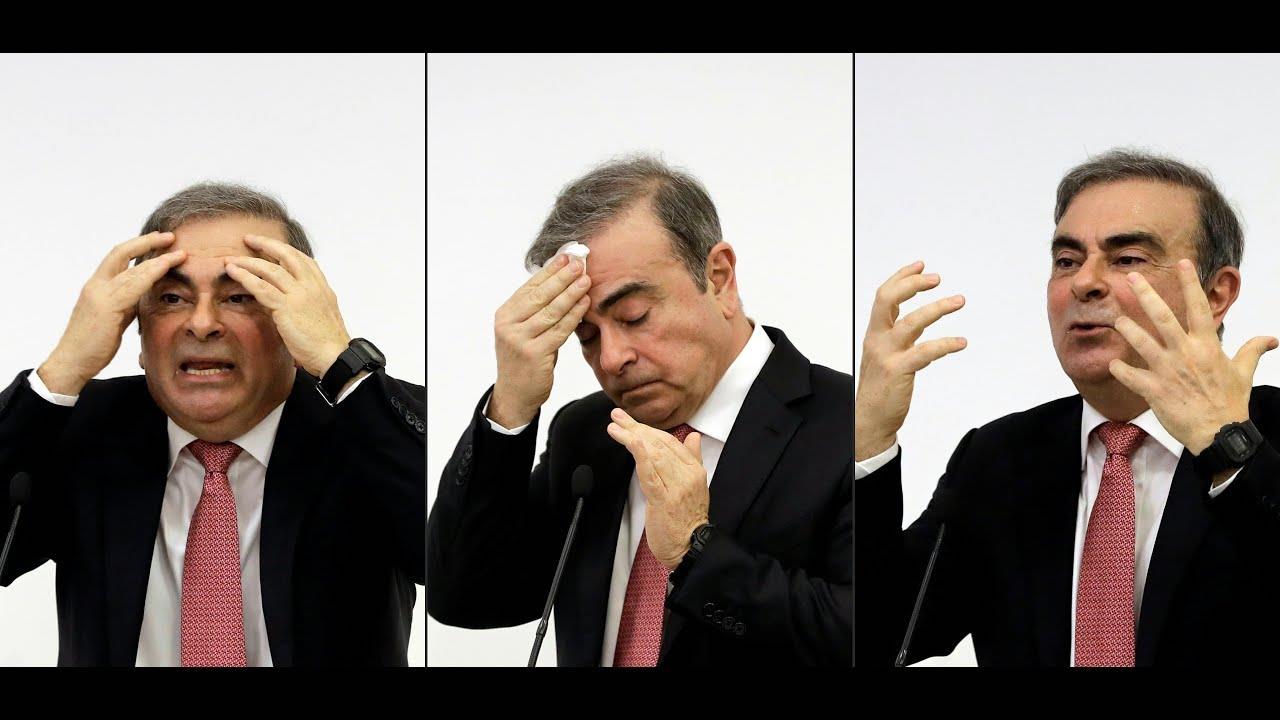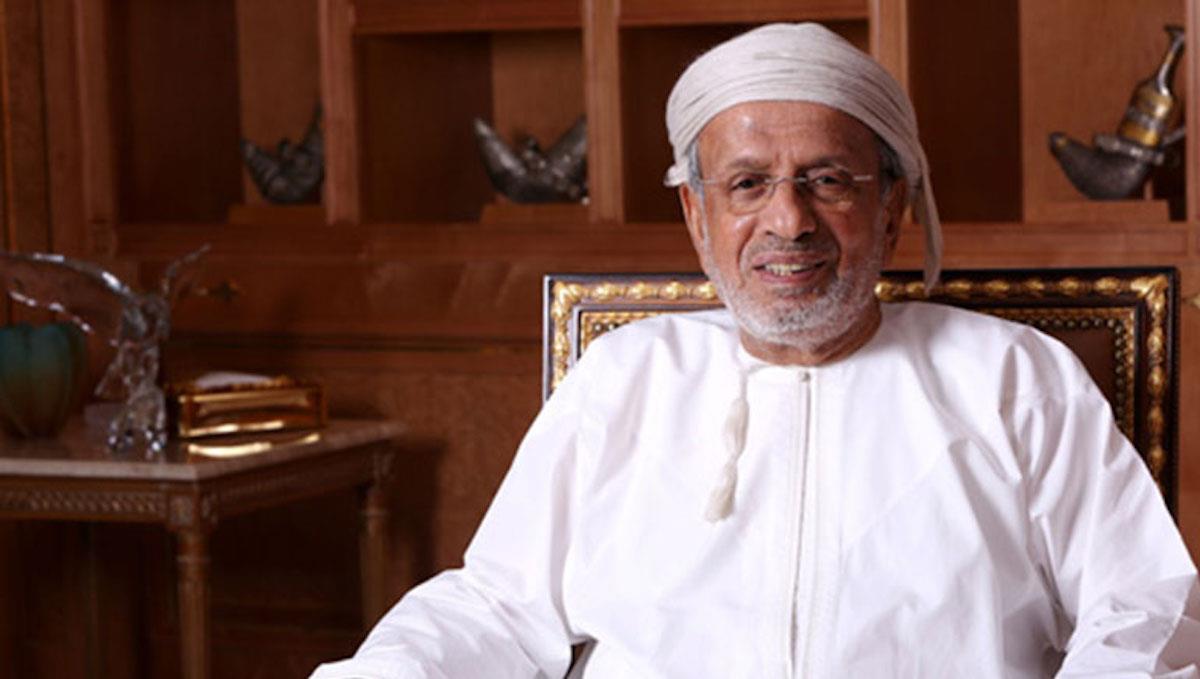(MENAFN- Asia Times)
French prosecutors who have been investigating Carlos Ghosn for more than two years, seeking to make a case he misappropriated company money, have finally issued an international arrest warrant.
They've also issued warrants for Omani billionaire Suhail Bahwan, two of his sons and a senior executive at his company, Suhail Bahwan Automobiles LLC, the national authorized dealership for Nissan, Infiniti and Renault cars in the Sultanate of Oman.
We haven't seen the indictment – the arrest warrant was issued Thursday (April 21) – but it is expected to involve Renault and Nissan's“Alliance” management subsidiary, RNBV.
Thus our reporting is somewhat speculative based on the charges Tokyo prosecutors filed against Ghosn in April 2019, when they accused Bahwan of laundering US$5 million for him from sales incentives paid by Nissan to the operation.
French prosecutors – relying in part, we were told, on stolen documents from Ghosn's office and residence in Beirut – have raised the amount to 15 billion euros ($16 million) and expanded the period for which Ghosn was allegedly siphoning off money from 2009 to 2018.
We presume through July 2018 because that was when the final payment was made according to the Japanese charge.
The Japanese charge was rebutted strongly in Tokyo District Court in October 2019 by one of Ghosn's Japanese lawyers, who clarified an apparent misunderstanding about the process by which payments by the CEO are made.
Simply put, the CEO can't just spend company money, even using the so-called“CEO reserve” fund, without receiving multiple authorizations. As one former insider explained:“They've omitted, at least the Tokyo prosecutors omitted, all the checks and sign-offs.”

Suhail Bahwan headquarters in Oman. Photo: Suhail Bahwan Group
It's not widely known that the Tokyo charges against Ghosn, regarding his dealings with both Suhail Bahwan Automobiles and Khaled Juffali in Saudi Arabia, had become part of the internal investigation into Ghosn's alleged misdeeds conducted by Nissan's former compliance chief, Christina Murray.
Murray, whose investigation would be shut down in August 2019, had identified nearly 60 Nissan middle managers and senior executives who would have had to assist Ghosn as“enablers,” wittingly or unwittingly, for him to have committed all of the crimes he is alleged to have committed, including using Suhail Bahwan Automobiles to launder money.
Among those on Murray's list was Stephen Ma and Hiroshi Karube, Nissan's current and immediate past CFOs.
We have reported that there was a coverup in the summer and fall of 2019 involving Nissan's newly formed audit committee and then board. On August 27, 2019, Murray approached Nissan's then COO, Yasuhiro Yamauchi, to ask about the status of Nissan's special Committee on Employment Action and Remediation (CEAR) investigation, and was told that Hari Nada, whose own actions were being probed for criminal misconduct, had shut the CEAR investigation down.
Nada, it turns out, had copped a plea with the Tokyo prosecutors' office the previous October, yet was still actively involved with the Ghosn investigation.
Two days later on August 29, 2019, the head of the board's audit committee, Tomoo Nagai, ordered her to stop investigating Nada. She resigned the following day, August 30. Speculation is that she signed a lucrative nondisclosure agreement.
Then at that year's September 9 board meeting – despite having received at the start of the meeting a whistle-blower report from the company's global general counsel – the board ignored its top lawyer and proceeded to conceal important information from the public including Nissan shareholders.
Now the Bahwan accusations have been resurrected in France, three days before the French elections. The French government has a 15% stake in Renault, and incumbent President Emmanuel Macron, who's running for reelection, has had a rocky relationship with Ghosn for years. Macron's right-wing challenger, Marine Le Pen, has also vocally criticized what both politicians have referred to as excessive executive compensation.
In a January 2020 press conference in Beirut following his escape from pre-trial custody in Japan, Ghosn pointed to the French government, and implicitly Macron, as responsible parties for having upset Nissan executives and other Japanese by pushing him to seek a complete merger of Renault and Nissan under French control.
The Japanese launched their against Ghosn precisely to prevent such a merger.
In view of the new French indictment, we need to report that at least 20 people would have been involved in authorizing each and every disbursement made by way of the CEO reserve fund – which, Ghosn pointed out in his book with Philippe Riès ,“is normally used for unexpected expenses or investment that occur during the fiscal year.”
Ghosn claims to have proof that all of the payments were made above board and with necessary authorizations. We'll find out sooner or later whether the French charges are as badly conceived as those in Japan, where the prosecutors accused Ghosn of pocketing $5 million in two $2.5 million installments between July 2017 and July 2018, despite the fact Ghosn was no longer CEO.
Hiroto Saikawa became CEO in April 2017.

Carlos Ghosn gestures as he speaks at a Beirut press conference on January 8, 2020, after having dramatically fled Japan, where he was accused of financial crimes. Photo: YouTube
In his October 2019 court filing in Tokyo, Ghosn's lawyer reported that
Other names mentioned in the brief of people whose signatures would have been required: Gilles Normand who was in charge of the Middle East, Emmanuel Delay, who was the corporate officer in charge of accounting, finance and management planning, as well as Colin Dodge, the board officer in charge.
Ghosn said the same rules applying to Nissan also applied to Renault, which is a 50-50 partner with Nissan in the RNBV subsidiary.
We don't know why the French prosecutors moved to issue their arrest warrants three days before a closely contested national election. Ghosn, in an interview with CNBC , said the timing is“suspicious.” He added, “This issue has been lasting for years.”
We do know that the coup to oust Ghosn, instigated by seven or eight rogue executives operating in secret from both Nissan's and Renault's boards, as well as that of Mitsubishi Motors, has wreaked havoc on all three Alliance partners.
Nissan has lost $19 billion in market capitalization while its share price has fallen nearly 50%. Renault's share price is down 67% as the automaker has lost $14 billion in value. Both have reported massive business losses – more than 1.1 trillion yen at Nissan in the first two years post-Ghosn and 8 billion euros at Renault in 2020. Production, sales and market share are down.
And Renault is now reportedly considering selling off part of its 43.3% stake in the Japanese automaker, not a good sign considering that in 2017 the Alliance, with the addition of Mitsubishi the preceding year, passed the Toyota and Volkswagen groups to become number one in global volume sales.
We also know that Ghosn can't, for the time being, be put on trial in France because Lebanon does not extradite its citizens.
Bahwan, a key link to Renault's and Nissan's business in the Middle East, is likely to resist any attempt at extradition now that the French prosecutors – and, indirectly, Renault and Nissan – have targeted his family.
As founder and chairman of Suhail Bahwan Group, one of the largest conglomerates in Oman, Bahwan has the means – reportedly nearly $3 billion in net worth – to resist. Bahwan, through his attorney, has reportedly denied any wrongdoing.

Suhail Bahwan. Photo: Suhail Bahwan Group
Ghosn, in his book, reported that“As part of Nissan's reconquest of the Middle East market, Suhail Bahwan Automobiles became a distributor for the Japanese automaker in 2004. The partnership was for sales, not only in Oman but also in other markets, through its Arata International Trading subsidiary. Those markets included Iraq, Libya, Saudi Arabia and even China. The partnership benefited Nissan considerably.”
Ghosn's French lawyer, Jean Tamalet, said on Friday (April 22) that the arrest warrant issued by the Nanterre prosecutor's office in an ongoing investigation“is surprising because the investigating judge and the Nanterre prosecutor know perfectly well that Carlos Ghosn, who has always cooperated with the French justice authorities, is subject to a judicial ban on leaving the Lebanese territory. We believe this move is the only technical resort they found to be able in the future to try the case in a court of law.”
It's a case we're not sure Ghosn opposes as it will provide him an opening to the evidentiary discovery that has eluded him during previous attempts to argue for his innocence. We reported on that last September.
As the old proverb goes: Beware – French prosecutors, Renault and Nissan – what you wish for. Ghosn, in extensive discussions with Asia Times about his legal strategy, gives every indication of having gamed this scenario out.
Veteran automotive correspondent Roger Schreffler is a former president of the Foreign Correspondents' Club of Japan. Follow him on Twitter: @RogerSchreffler
MENAFN24042022000159011032ID1104082330